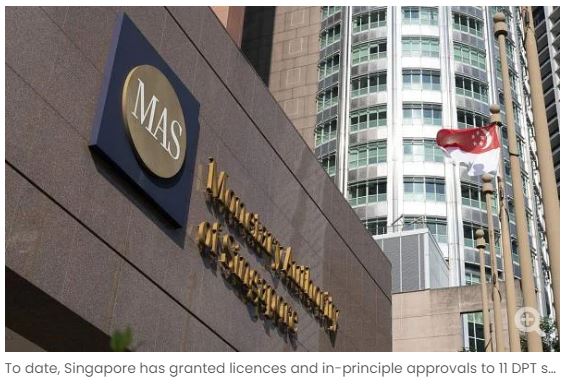Singapore: MAS issues 3 crypto licence in-principle approvals
SINGAPORE has awarded 3 more in-principle approvals for its much-coveted digital payment token (DPT) licence that allows companies to offer crypto services.
The applicants were not named. The move was announced on Wednesday (Jun 22) in a speech by Deputy Prime Minister Heng Swee Keat, who reiterated Singapore’s desire to work with blockchain and digital asset players.
“We are committed to partner innovative and responsible players to grow the Web 3.0 ecosystem and community in Singapore,” he said in a recorded speech during the opening of the Point Zero Forum in Switzerland.
The financial services forum is hosted by Elevandi, a company set up by the Monetary Authority of Singapore (MAS) and The Swiss Secretariat for International Finance.
Heng’s comments come in the wake of a cryptocurrency meltdown that has plunged several crypto companies into crisis. Still, interest in Web3 technologies is at an all-time high and regulators globally have expressed interest in turning their countries into a crypto hub.
Singapore’s crypto hub status has been questioned over the past year as frustrations appeared to mount over the ease of obtaining a crypto licence. Dubai, which has ambitions of becoming a Web3 hub, has been floated as a more crypto-friendly alternative by some industry players.
Under the Payment Services Act, which came into effect in January 2020, all providers of DPT services operating in Singapore must be registered and licensed.
To date, Singapore has granted licences and in-principle approvals to 11 DPT service providers, excluding the latest 3 issued. These include stablecoin players, crypto exchanges and traditional financial institutions.
Heng said the partnership between regulators and the fintech industry will help promote the ecosystem responsibly, such as encouraging the upsides of Web3 while minimising downsides.
“Regulators and most of the fintech community share a common goal, which is to use finance and tech to create value and improve lives. They need not be operating at cross purposes or take an adversarial approach. Doing so works to no one’s benefit,” he said.
“Crypto assets have more recently been in the spotlight for the wrong reasons,” Heng added. “This, however, does not reflect where the greatest value of blockchain and digital assets lies, much of which is away from the retail glare.”
The blockchain technology underlying cryptocurrencies, for instance, could improve wholesale cross-border transactions. Cross-border settlements today involve a few intermediaries and are mostly bound by fixed operating hours of settlement banks and systems.
Heng said Singapore will facilitate live experiments in Web3 through regulatory sandboxes, including testing the feasibility of decentralised finance and asset tokenisation.
Source: https://www.businesstimes.com.sg/garage/mas-issues-3-crypto-licence-in-principle-approvals


 Thailand
Thailand




